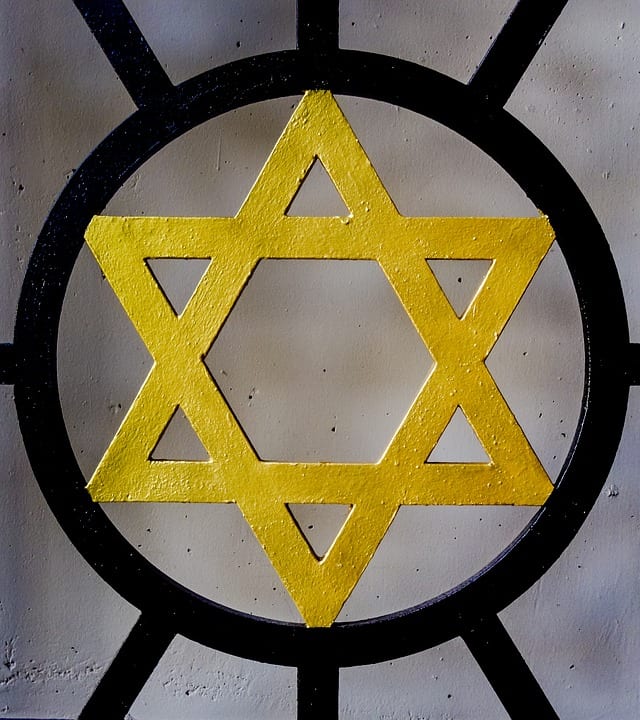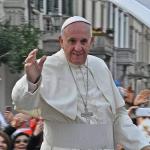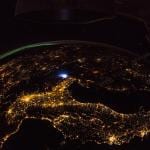by guest writer William Shea, PhD
Christianity in general and the Catholic Church in particular are loaded with mysteries, more than enough to keep curiosity and deep thought busy. I found one outside Christianity’s borders that caught my attention since I was a child and has only intensified over the next seventy years. To my mind Jews and their history are uniquely glorious and miserable. I have only gradually realized how much the churches owe to Judaism and Jews while their misery came to me in a flash when I approached ten years old.
The renewal of anti-Semitism in contemporary Europe and the United States shouldn’t be a surprise but to me it is a shock. After our long history of it in the West, culminating in 1935 to 1945 in a paroxysm of the Nazi attempt to destroy Judaism and every Jew, as well as the general German Christian acquiescence in it, I was for most of my life convinced that we had seen an end to anti-Semitism. Have we learned nothing? Apparently many of us haven’t learned a damned thing! I am not just disturbed by it; I am depressed enough to regard the human project a failure. Hope has been proven a lie I have told myself. The history of the people and the land suggests that human history itself doesn’t bend toward justice at all. As with galaxies, with us there is an expanding Black Hole. We may get better at making automobiles, we don’t get better at being human. This all scares me and especially for my grandsons.
I grew up in the East Bronx in a white Christian neighborhood with four churches, two Roman Catholic, one Episcopalian and one Lutheran, no synagogue and, to my acquaintance, only one Jewish family. In the middle of the winter 1944-45 I was badly burned in a cooking accident and spent nearly two months in hospital and the rest of the spring and summer recuperating. It was hell on earth for a ten year old. But, as I got over it physically ( never psychologically!), I had one memorable treat. My mother worked in the local movie theater and so I got in free, and did so most afternoons. In addition to Bella and Boris and John Wayne and Alan Ladd I got to see Movietone News. For months I watched the liberated camps, the corpses living and dead, and especially the tiny children being escorted by nuns out of the camps in their striped clothes displaying the numbers burned into their left forearms, scars like my own but inflicted by sadists. Eisenhower, Bradly and Patton were there at Dachau watching the SS guards and townspeople tossing dead Jews into mass graves. Later I saw the Russian films of Auschwitz-Birkenau with it’s oven doors open to burn people like me — except they were Jews and gypsies and homosexuals and Poles and Russians and various other untermenschen. “What the hell is going on here?” I asked myself.
What does it mean to be a Jew?
I returned home in the afternoon to find Morty and Kenny Karp playing with the other kids on Frisby Avenue or hanging out in front of the Frank’s soda shop on the corner of St. Peter’s and Frisby. It was a revelation — they were Jews! Had Hitler won they would have been in an oven with their parents, Sol and Margie. So that’s what it means to be a Jew! To be a Jew is to be hated. Later I read that Hitler had responded to a Catholic bishop who complained about his treatment of Jews by saying, “But I am only bringing to completion what the Catholic Church started.” I am just now reading Paul Johnson’s A History of Judaism, and can see again that Hitler was right: fifteen hundred years of hatred, persecution, ghettoization and exile.
Outside of the Karps in my first twenty years I knew only one Jew, Morris Straussman, my father’s boss. MY father liked him and the many other Jews he worked for the Union News Company. In fact, he once told me he thought the Jews he knew were a cut above the Catholics in the in terms of kindness and honesty. He also thought that Protestants went to heaven, more food for thought for a Catholic school boy in those days who had been taught the eternal punishment for heresy. When my father was hospitalized with TB for nine months the boss sponsored a collection every month to support him and delivered it in person while no family member aside from my mother ever even visited. Visiting a TB patient was a bridge too far in those days like Covid in ours. My father also once had an African-American to dinner in a neighborhood in which I had never seen a black person. He was full of surprises. I don’t think that at the time I appreciated what he meant to signal to his sons.
A teachable moment.
Three years after I was ordained a priest I was assigned to a parish in Pelham Manor, N.Y. Called to the office one day I found myself in a conversation with a Jewish woman who wanted to be assured that her mother was in heaven. She wanted to hear that from a priest because her own rabbi was Reformed and “who knows what he believes.” But I was a priest and believed what the pope believed, so she wanted to hear it from me. “Please don’t convert me,” she said, “I have enough guilt in my life and don’t want to add to it by becoming a Christian.” I wouldn’t have anyway because even back then I didn’t think proselytizing was part of my job description! So we began to talk and talked on for thirty years. She took on the job of teaching me about Judaism and its travails in her native Poland and worldwide. Lo and behold when I got to the University of South Florida I met in one of my classes on “The Life and Teaching of Jesus,” another very bright young Jewish mother (Irena was also very bright) who, among the things, helped me out when one the Baptist students asked the standard Christian question, “Why didn’t the Jewish people accept Jesus as the Messiah?” I turned to Susan and asked her to explain it to us. She didn’t hesitate: “They didn’t because according to the prophets the Messiah is to bring peace — and where is the peace?” As Obama might put it, that was a teachable moment. Could have knocked me and the Christian students over with a feather of the Dove. We became friends and now Susan has packed her bags for a flight to Israel should anti-Semitism spread here as it did in Europe.
A year or so later Jacob Neusner, one of the century’s preeminent scholars of the Talmud, arrived in our faculty of religion, and I had the unforgettable experience of sitting in on his lectures on the origins and literature of early rabbinic Judaism. This was the only the third time in my fifty years of teaching at universities that I sat at the feet of another faculty member. He not only knew what he was talking about but he was wise. He guided me as a big brother as well as taught me. His book (only one of his six hundred!) A Rabbi Speaks with Jesus, added significantly to my store of insights in answering the question Susan had answered in the class two years before.
I’ve had a rich if limited experience of Jews being Jews, one of the most important of my eighty-five years. From the Karps in the Bronx to the Neusners in Tampa it seems that I’ve been blessed with a flood of intellectual and spiritual grace by knowing and loving these Jews. Add that fact to the scenes of the camps and the murders in the synagogue in Pittsburgh, and I am face to face with the mystery at every turn, and not merely a puzzle an historian might solve, but a mystery of theological heft: “Why the Jews? What the hell is going on?” I think it’s because they carry the torch of Light as they have been chosen to do and which the Darkness must pull into itself. But the Darkness has not “comprehended” it.
image credit: jewish-star-2151313_960_720.jpg













